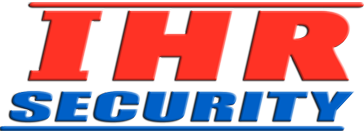What is Home Automation?
Home automation, also known as a smart home system, allows you to control various devices in your house remotely and intelligently. With advancements in technology, more people are integrating smart devices into their daily lives. Home automation relies on the Internet of Things (IoT) to automate and manage household devices such as lighting, sprinklers, thermostats, and more.
This technology enables you to control your home appliances—like lights, televisions, music systems, and security cameras—from the palm of your hand through smartphones or other internet-connected devices. While not every product currently supports home automation, the transition towards smart technology is accelerating rapidly.
Home Automation Market Overview
The global home automation market is expected to reach USD 78.2 billion by 2022. Growth is anticipated across products, software, and services related to smart home technology. Europe is predicted to experience the highest growth in home automation adoption, with an expected annual revenue increase of 17%.
Among home automation devices, lighting controls are forecasted to see the fastest growth in the coming years. Additionally, smart meters that monitor energy consumption in real time are gaining popularity. These meters communicate energy data back to authorities, helping both commercial and residential customers conserve energy and reduce utility costs.
Benefits of Home Automation for Residential and Commercial Users
Home automation is designed to save time and energy, allowing users to focus on more important tasks. By scheduling smart devices to perform routine functions, both homeowners and business owners can reduce energy usage and increase operational efficiency.
One of the biggest advantages of home automation is energy efficiency. Smart thermostats and climate control systems adjust heating and cooling based on occupancy and preferences, reducing unnecessary energy consumption. For example, users can program their systems to turn on heating just before arriving home and turn it off when the house is empty.
Lighting automation can also help save energy by adjusting brightness levels throughout the day, such as dimming lights in the morning and brightening them at night.
Security is another major benefit of home automation. Sensors, alarms, and surveillance cameras connected to a smart system can alert homeowners and authorities immediately if an intrusion occurs. These systems reduce false alarms and improve response times by providing real-time video footage and alerts.
Why is Home Automation Growing Rapidly?
Several factors contribute to the rapid growth of home automation systems:
Expansion of the Internet of Things (IoT) market
Increased demand for energy-efficient solutions
Rising importance of home security
Growing desire for remote home monitoring and control
The home automation market is projected to grow at a compound annual growth rate (CAGR) of 12.46% between 2016 and 2022. Virtually any household device that can connect to a network is a candidate for automation—from simple light switches to complex appliances.
When connected to the internet, smart devices offer more than just basic on/off functions. They provide flexibility to schedule tasks, save energy, and remotely monitor and control your home from your smartphone, tablet, or computer.
Devices That Can Be Controlled by Home Automation Systems
Home automation systems can control a wide range of household devices, including:
Lighting and window shades
Audio and video systems
Door locks and garage doors
Sprinkler systems, pools, and hot tubs
Smart TVs and entertainment devices
Washing machines and refrigerators
Coffee makers and kitchen appliances
Thermostats and climate control systems
Security cameras and sensors
Many of these devices can be integrated to work in coordination. For instance, your coffee maker and toaster can be programmed to prepare breakfast simultaneously. All devices can be managed via smartphone apps or touch-screen controllers, offering easy remote access and control.
Monitoring energy usage and device performance is simple with smart home apps, which provide real-time logs and reports. This makes it easier to identify energy-saving opportunities and streamline household management.
Security devices such as cameras and alarms can be interconnected to enhance protection. Scheduling these devices to work in harmony improves safety while adding convenience to daily routines like turning on lights, adjusting thermostats, or activating sprinklers.
Conclusion
Home automation is transforming the way we live and work by making daily tasks easier, enhancing security, and promoting energy efficiency. As smart technology becomes more affordable and accessible, more homeowners and businesses are adopting these systems to enjoy the convenience and peace of mind they provide.



